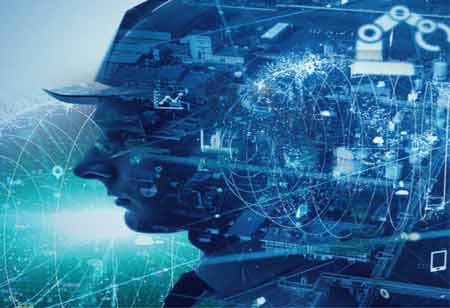THANK YOU FOR SUBSCRIBING
Be first to read the latest tech news, Industry Leader's Insights, and CIO interviews of medium and large enterprises exclusively from Education Technology Insights
What Are the Best Practices for Implementing AI in Education?
Personalized learning, task automation, and AI-based intelligent assistants are some of the best practices for implementing AI in education.

By
Education Technology Insights | Monday, September 09, 2024
Stay ahead of the industry with exclusive feature stories on the top companies, expert insights and the latest news delivered straight to your inbox. Subscribe today.
Personalized learning, task automation, and AI-based intelligent assistants are some of the best practices for implementing AI in education.
FREMONT, CA: AI technology is the buzzword, regardless of industry. With the introduction of AI, our perceptions of traditional processes and systems have shifted, leaving us intimidated by the limitless possibilities it has to offer. The need for personalization, predictive analytics, and other capabilities drives the growing use of AI. In the education sector, AI has transformed the traditional learning process. Not only has it enabled the education community to realize its full potential in teaching, learning, and administrative processes for all levels of education, from K-12 to higher education and even corporate learning. The pandemic has proven to be a catalyst for bringing AI to a broad range of target audiences and for the technology to have a long-term impact on its users.
AI can be implemented in education in the following ways:
Learning assistance outside the classroom: When it comes to teaching children algebra, quantum mechanics concepts, chemical equations, and other subjects, parents face significant challenges. Apart from students, parents are undoubtedly intrigued by the prospect of AI capable of putting down their child's curiosity.
AI-powered chatbots or virtual learning assistants can help students stay on track with their studies by offering 24/7 feedback, information, and instruction on essential or unclear issues or concepts, regardless of geographical barriers. Some students are too nervous to ask questions in front of their peers because they are afraid of being embarrassed by the stupidity of the question, anxious about their error, or intimidated by the teacher. The availability of AI virtual assistants, which cannot judge students, enables students to ask questions freely at all day hours. These virtual tutors or assistants adopt a personalized approach to meeting each individual's specific learning needs, which leads us to the next AI application in education.
AI-powered intelligent assistants: Educators may find it overwhelming and time-consuming to respond to repetitive questions personally. Instead, providing students with AI-powered chatbots using EdTech software or e-learning platforms is necessary. The teachers can employ AI technologies such as machine learning (ML), natural language understanding (NLU) and natural language processing (NLP) to improve the interpretation of students' questions, paired with AI's generative capabilities. AI chatbots can resolve a variety of intents in addition to answering study-related queries.
Task automation: Tough AI would not replace instructors but would certainly lessen their workload. It would make the time-consuming tasks of updating reports, creating presentations and notes, grading tests, keeping records, and so on easier, allowing educators to recapture their necessary time. The AI-powered educational app can also help with scheduling, attendance tracking, and managing permission forms.







